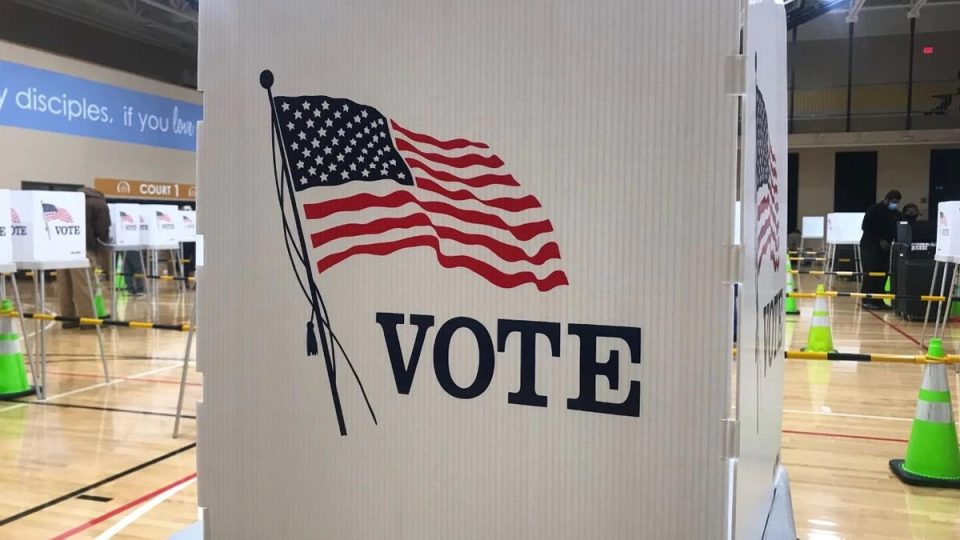Several Republican senators easily won re-election in Tuesday’s US midterm elections, which could usher in an era of divided government and erode President Joe Biden’s power in Washington.
Preliminary results don’t change the balance of power in the 50-50 Senate, where Democrats currently control the Senate with a tie-breaking vote, as voting in six states closes.
Edison Research expects incumbent Republican senators Tim Scott of South Carolina and Todd Young of Indiana to win re-election. Fox News expects Republican Rand Paul to win re-election in Kentucky and Democrat Peter Welch to win an open Senate seat in Vermont.
35 Senate seats and all 435 House seats are on the ballot. Republicans typically lean toward gaining the five seats needed to control the House, but Senate control could come down to tight competition in Pennsylvania, Nevada, Georgia and Arizona. The races of some 36 governors are also at stake. The end result is unlikely to be known anytime soon.
Over 46 million Americans voted by mail or in person before Election Day, according to the American Elections Project, and state election officials have warned that it will take time to count all those ballots. Control of the Senate won’t be known until after a possible runoff in Georgia on December 6.
Worried about high inflation and crime, voters are bracing for an era of divided government in Washington, even as Democrats warn of erosion of abortion rights and the destruction of democratic norms.
Edison Research’s exit poll of midterm voters shows inflation and abortion are voters’ top concerns, with three in 10 listing them as one of their top concerns.
US officials said they saw no “concrete or credible threat” to disrupt election infrastructure. Local officials reported isolated problems across the country: a bomb threat in Louisiana, a paper shortage in Lucerne County, Pennsylvania, and the shutdown of a website in Champaign County, Illinois.
In Maricopa County, Arizona – a key battleground – officials said they were repairing a malfunctioning tabulator and said every vote would be counted. That has sparked claims from the right that the failures were intentional.
A new conspiracy theory has spread on Twitter just days after the company fired half of its employees and new boss Elon Musk backed Republicans, experts report. Biden said hundreds of Republican candidates echoed Trump’s false claim that his 2020 loss to Biden was due to widespread fraud.
Many voters said they were frustrated with the annual rate of inflation, at 8.2%, the highest in 40 years. Concerns about rising crime are also a factor in left-leaning areas like New York, where incumbent Democratic Governor Kathy Hocher faces a tough challenge from Republican Lizel Ding.
In Congress, the Republican-controlled House will be able to block bills that touch on Democratic priorities such as abortion rights and climate change. Republicans could also have a showdown over the national debt ceiling, which could shake financial markets and launch investigations into Biden’s administration and households.
If Republicans regain control of Congress, they would have the power to block aid to Ukraine, but analysts say they are more likely to slow or cut off the flow of defence and economic aid.
The Republican Senate will take control of Biden’s judicial nominations, including any Supreme Court vacancies, increasing the focus on an increasingly conservative court.
The Supreme Court’s June decision to overturn national abortion rights galvanized Democratic voters across the country, temporarily boosting the party’s hopes of controlling the loss. But despite one of the strongest job markets in history, the stubborn rise in prices has left voters unhappy.
A Reuters/Ipsos poll this week found that only 39% of Americans approve of the way Biden works. Some Democratic candidates have deliberately distanced themselves from the White House as Biden’s approval ratings dwindle.
Trump is similarly low in the polls, with only 41% of respondents to a recent Reuters/Ipsos poll saying they had a favourable view of him. Trump, who voted in Florida, has often hinted at a third presidential bid. He said on Monday that he would make a “big announcement” on November 15.
Election deniers prevalent among Republican candidates have exacerbated low vote counts that typically receive little attention.
Republican candidates leading state electoral agencies in swing states such as Nevada, Arizona and Michigan have embraced Trump’s lies that have Democrats worried they could interfere with the 2024 presidential race if they win.
Those concerns even affect some Republican-leaning voters, like Henry Bowden, a 36-year-old Atlanta attorney who said he voted for a mix of Republican and Democratic candidates.



